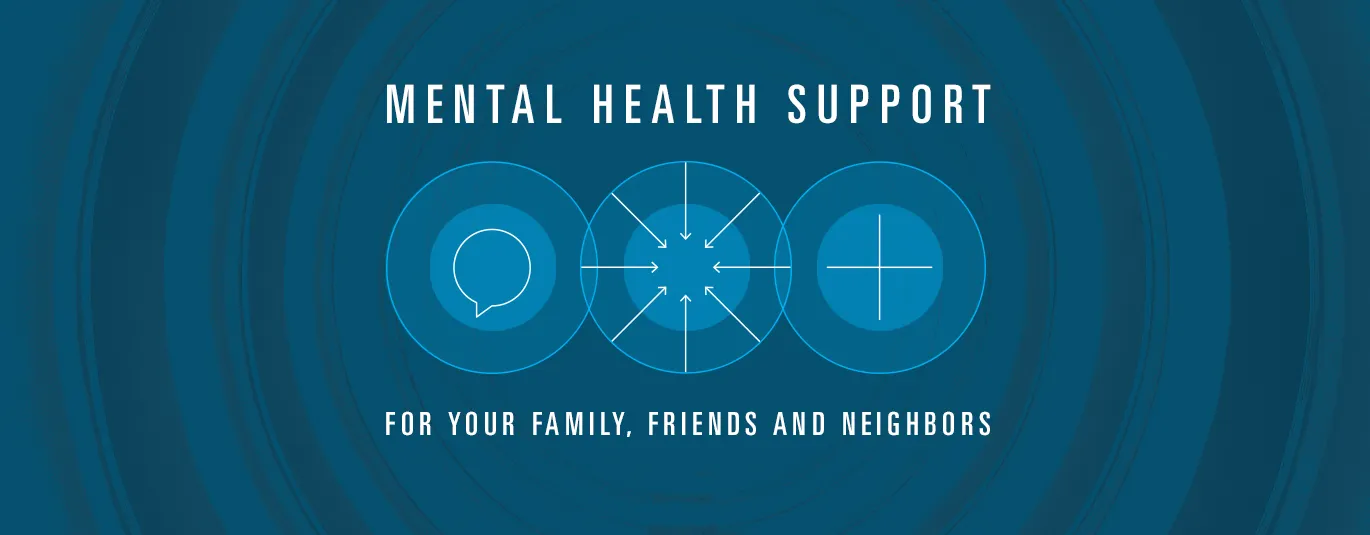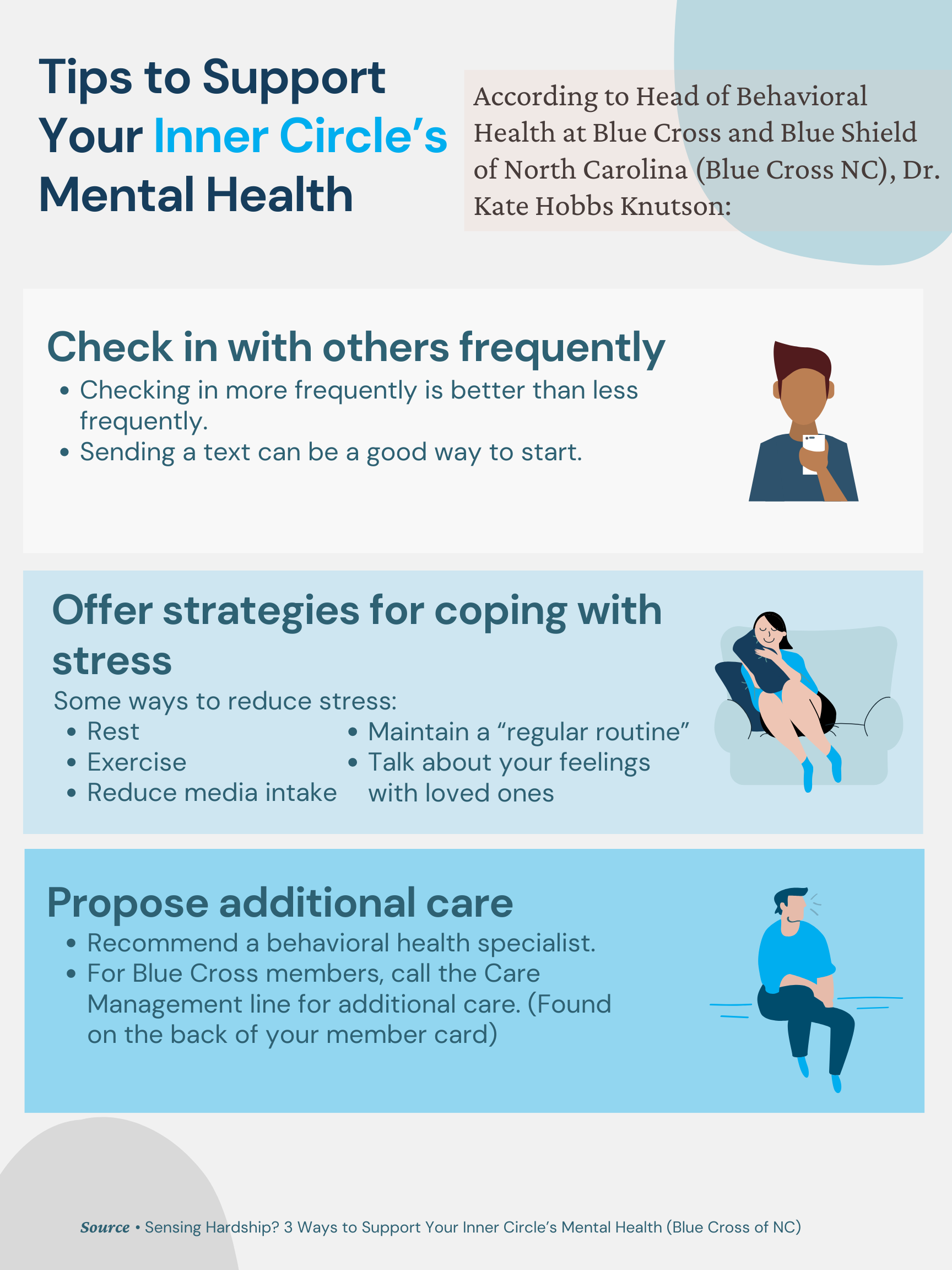
For the past few weeks, I’ve noticed that my neighbor seems, well, a bit off. Once talkative and outgoing, he is now reserved and disinterested. When we do speak, his comments reflect hopelessness.
These interactions are common. I now have similar conversations with coworkers, friends and family members. Although it’s certainly not all “doom and gloom,” my loved ones mention sleepless nights, invasive thoughts, loneliness – and yes, hopelessness.
Indeed, research shows that during times of crisis, the prevalence of anxiety and depression is expected to double. Those with pre-existing mental health or substance-related conditions are among the most vulnerable. People at higher risk for contracting COVID-19 (such as older adults or those with underlying health conditions) may also experience more worry.
It’s no wonder, then, that my neighbor is having difficulties during this time. Given his age, he falls into the high-risk category. He has spent the last two months socially isolated. He is a grandfather of three, and these days, he is only able to see his grandchildren on video chat.
During my conversations with him, I often feel powerless. I want to support my loved ones and community members who are struggling – but how?
According to our Head of Behavioral Health at Blue Cross and Blue Shield of North Carolina (Blue Cross NC), Dr. Kate Hobbs Knutson, there are three “lines of defense” we can take when it comes to giving support.
1. CHECK IN WITH OTHERS FREQUENTLY.
If you’re like me, you’ve probably struggled with knowing when or how to check in on someone. How often is enough? How often is too much? And how can you begin that conversation?
Hobbs Knutson’s first suggestion – which I now use as my North Star – is to “err on the side of more frequent contacts.” She reasons that when someone is struggling with loneliness, depression, and isolation, gentle outreach from people who care can make a meaningful impact.
A good icebreaker for these encounters might be to begin with an observation. Any time you make an observation, you’re creating an opportunity for that person to share their experience.
Here’s an example. After speaking with Dr. Hobbs Knutson, I approached my neighbor and asked him how he was doing. He said “good.” But as the conversation progressed, he began to talk about how much he missed his grandchildren. With that opening, I responded with an observation about how downtrodden he seemed lately. I mentioned how different that was from his usual cheerfulness. He agreed. From there, we were able to directly talk through some of the challenges he’s facing.
One additional tip: If you’re struggling to begin the conversation face-to-face (albeit from six feet apart), start with a text.

2. OFFER STRATEGIES FOR COPING WITH STRESS.
Fortunately, a lot of strategies for reducing stress under “normal circumstances” also apply during a crisis. Common steps to reduce stress and enhance self-care are:
Resting
Exercising
Reducing media consumption
Trying to keep a somewhat “regular routine”
Talking about your feelings with loved ones, faith leaders or community members
These strategies are incredibly helpful for our overall well-being. You can offer these reminders to loved ones by asking questions. “Are you getting enough sleep?” “What does your daily routine look like?” “Have you been able to share these feelings with others who care about you?”
In addition, many employers are now playing an active role in supporting their employees’ mental health. HR should be able to provide additional information about your company’s health benefits, Employee Assistance Program (EAP) and counseling services. Some companies also offer financial assistance if an employee is struggling and has barriers to seeking care.
For example, my company has a program called Blue Assist. The program was established to help employees experiencing an unexpected event that is beyond their control. This fund provides a way for employees to directly support fellow employees who are experiencing a financial hardship. And helping others is another great way to boost your mental health.
Check out these other strategies for coping with stress during a disease outbreak.
3. PROPOSE ADDITIONAL CARE, IF APPLICABLE.
You alone are not expected to solve the mental health challenges that your community members are facing. But, because of your proximity, you can serve as the “first line of defense.”
If you notice that someone you interact with is dealing with chronic stress, it may be useful to share resources about seeking further care. Right now, it is possible to access mental health counseling by phone and video. A directory of behavioral health specialists that offer telehealth options is available on the bluecrossnc.com website.
In addition, our members can call the care management line on the back of their member cards.
Doctors recommend seeking professional mental health care if the symptoms of chronic stress interfere with someone’s life.
Remember, right now it normal to feel abnormal. We are each dealing with peculiar circumstances. This situation involves uncertainty, lack of control, social isolation, and a life-threatening illness. Seeking behavioral health care during this time is a helpful strategy for dealing with these challenges. And, it works.
SEE ALSO: Six Surprising Ways Hiking Can Improve Your Mental Health, Tips For Taking Care Of Your Mental Health, Real Men Go To Therapy: Know The Signs Of Depression In Men